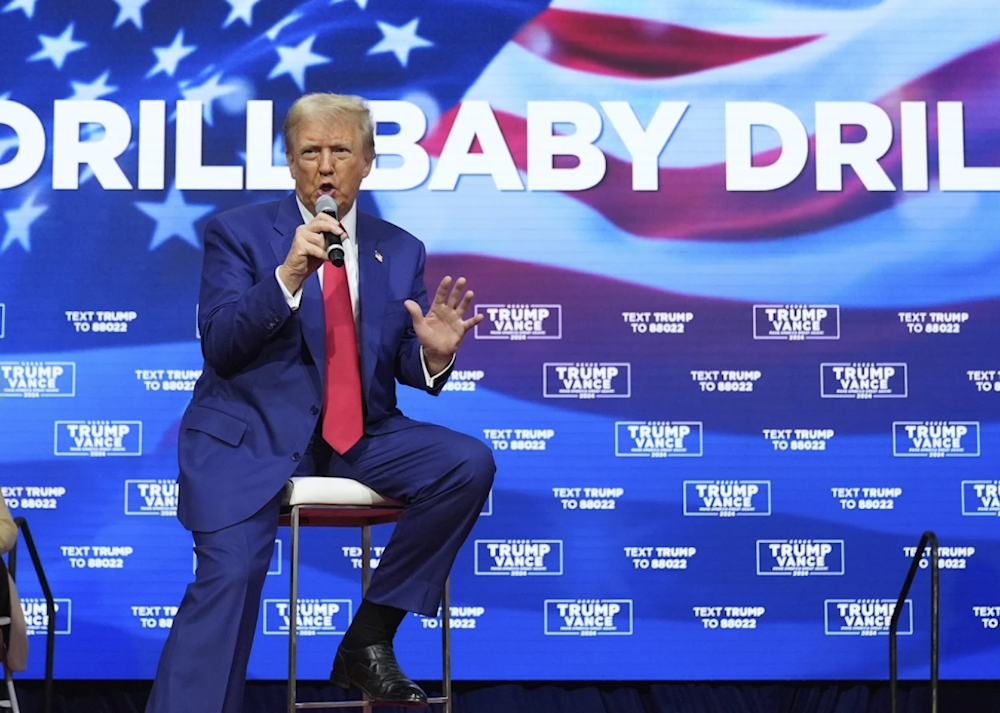Trump deep-sea mining order sparks irreversible ecosystem damage fears
The decision comes amid concerns over China’s dominance in critical minerals like nickel, cobalt, and manganese—key materials in high-tech and military industries.
-

Donald Trump during a campaign town hall on October 14, 2024, in Oaks, Pennsylvania (AP)
Environmental groups are criticizing a new executive order from Donald Trump that accelerates deep-sea mining, warning it could cause lasting harm to marine ecosystems and bypasses ongoing efforts to set global rules for the practice.
Signed Thursday, Trump disregarded international norms by pushing for the rapid expansion of deep-sea mining in both domestic and international waters, prompting Beijing to angrily condemn the move as a violation of international law.
The decision comes amid concerns over China’s dominance in critical minerals like nickel, cobalt, and manganese—key materials in high-tech and military industries. Trump framed the move as a step toward making the US a "global leader in seabed mineral exploration and development both within and beyond national jurisdiction.”
The order follows an announcement by Canada-based The Metals Company, which said it plans to seek approval through a US subsidiary to mine in international waters. In a statement Friday, the company said it aims to apply for permits this year to extract mineral-rich nodules to help bolster US critical mineral supply chains.
“As always, we remain committed to acting in the best interests of our sponsoring states, partners, investors, and the planet,” said CEO and chairman Gerard Barron.
Over 30 nations push for moratorium
However, environmental groups warn the mining could threaten fisheries and disrupt the ocean’s ability to absorb carbon dioxide, a key factor in climate change driven by fossil fuel emissions.
More than 30 nations, along with environmental groups, fisheries organizations, and some auto and tech companies, are pushing for a moratorium on seabed mining.
Jeff Watters, vice-president for external affairs at the Ocean Conservancy, said, “Scientists agree that deep-sea mining is a deeply dangerous endeavor for our ocean and all of us who depend on it,” adding, “The harm caused by deep-sea mining isn’t restricted to the ocean floor: it will impact the entire water column, top to bottom, and everyone and everything relying on it.”
These concerns led most countries in the 1990s to join the United Nations-affiliated International Seabed Authority to regulate mining in international waters. However, the US never signed onto the agreement and has yet to implement its own rules.
'Greed before common sense'
Watters cautioned that rejecting those efforts "is opening the door for other countries to do the same" before protections are implemented. Duncan Currie, legal counsel for the Deep Sea Conservation Coalition, cautioned that the implications might extend beyond deep-sea mining, impacting agreements on fishing, shipping, navigation, and marine research.
The world must also consider whether it can afford to stop mining deep-sea minerals that may contribute to the development of low-carbon technology to combat climate change, as well as whether the consequences can be handled, according to Assheton Stewart Carter, CEO of the global consulting firm TDi Sustainability.
“We face tough choices and the prospect of uncomfortable trade-offs if we are to face and find solutions to serious climate change problems,” Carter noted.
Katie Matthews, chief scientist at the advocacy organization Oceana, criticized Trump’s directive, calling it "a clear case of putting mining companies’ greed over common sense … Any attempt to accelerate deep-sea mining without proper safeguards will only speed up the destruction of our oceans.”

 3 Min Read
3 Min Read










